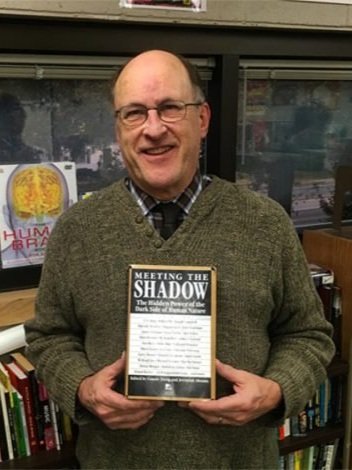Leonard Cohen’s Old Ideas
By Bill Bornschein | March 20, 2012
With song titles such as Going Home, Amen, Come Healing, and Darkness, it is not surprising that Leonard Cohen’s new album, Old Ideas, resonates with themes that Ernest Becker addresses. Indeed, in a New York Times interview Cohen stated that the work is a reflection on mortality. With an able assist from lyricist Patrick Leonard, Cohen engages with central questions, confronts primal fears, and describes a life lived forward in a way that both gnaws at and comforts the listener. Minimal arrangements coupled with a gravely monotone spoken-word delivery produce a drone that has the effect of hearing prolonged Tibetan chanting. You could easily miss gems like this from the song Banjo in which Cohen describes impending death: “It’s coming for me darling, no matter where I go. Its duty is to hurt me. My duty is to know.” The duty to know? That sounds like the response of a person who has taken up the task of wrestling with unrepression: someone who has seen the future and refuses the seduction of denial. With this post I would like to explore the lyrics of a particular song, Going Home. Take time to consider these lyrics.
Going Home
Leonard Cohen/Patrick Leonard
I love to speak with Leonard
He’s a sportsman and a shepherd
He’s a lazy bastard
Living in a suit
But he does say what I tell him
Even though it isn’t welcome
He just doesn’t have the freedom
To refuse
He will speak these words of wisdom
Like a sage, a man a vision
Though he knows he’s really nothing
But the brief elaboration of a tube
Going home
Without my sorrow
Going home
Sometime tomorrow
Going home
To where it’s better
Going home
Without my burden
Going home
Behind the curtain
Going home
Without the costume
That I wore
He wants to write a love song
An anthem of forgiving
A manual for the living with defeat
A cry above the suffering
A sacrifice recovering
But that isn’t what I need him to complete
I want to make him certain
That he doesn’t have a burden
That he doesn’t need a vision
That he only has permission
To do my instant bidding
That is to say what I have told him
To repeat
I love to speak with Leonard
He’s a sportsman and a shepherd
He’s a lazy bastard
Living in a suit
The presentation of self-consciousness is quite powerful, is it not? The third-person running commentary we carry on within ourselves from time to time serves as the vehicle for a view of the self that is by turns loathing and affirming. The self-conscious presentation of the self to the external world coexists with knowledge of the man behind the mask. We hear the existential cry for transcendence, “a cry above the suffering” that is dashed against the hard stone of reality. It is Cohen’s ability to bestride both psychic worlds that is so intriguing. It nicely reflects Tillich’s famous “courage to be.” Cohen’s description of himself as an “elaboration of a tube” nicely reflects the evolutionary process as well as what Becker describes as the horror of the natural world, the global cafeteria of food in/food out. And yet, this tube is not frozen. It is moving. It is going home. And it is going home consciously, “without the costume that I wore,” a clear reference to the vital lie of culture. The contrasting feelings of mortal resignation and freedom from cultural roles inhabit a liminal world, the world where the falling angel meets the rising ape. As with Becker, there is no apotheosis. At song’s end, he is still in his suit, although he no doubt inhabits it differently than when he first slipped it on. With Old Ideas, Leonard Cohen faces his mortality by fashioning something, making an offering, so to speak, and dropping it into the confusion.

